Though online shopping is the norm today, there was a time when it was a complete novelty. The first online sale took place in 1994, when a man sold a Sting CD to a friend through his website, NetMarket, the first online retail platform.
Since then, ecommerce as a business model and ecommerce companies have exploded in scope, totally redefining the global retail landscape in the process. Global ecommerce sales are expected to reach $5 trillion in 2022 and $6 trillion by 2024. In the US, ecommerce accounts for more than 13% of total sales.
What is ecommerce?
Ecommerce, short for “electronic commerce,” is a business model in which products and services are bought and sold over the internet.
It also concerns the transfer of money and data that make these transactions possible. Although many consumers associate ecommerce only with products, the term encompasses any and all commercial transactions made possible by the internet—whether it’s buying a sweater from a manufacturer in New Zealand, or hiring a cleaner’s services through Craigslist.
The growth of ecommerce has been driven both by digitally native global online marketplaces, like Amazon and Alibaba, as well as traditional brick-and-mortar retailers that have expanded their own ecommerce presence, like Target and Best Buy. While each of these retailers are operationally similar in terms of ecommerce basics, they’ve also carved out their own unique niches in the ecommerce landscape by focusing their product ranges or developing unique fulfillment strategies.
10 top ecommerce companies
1. Shopify
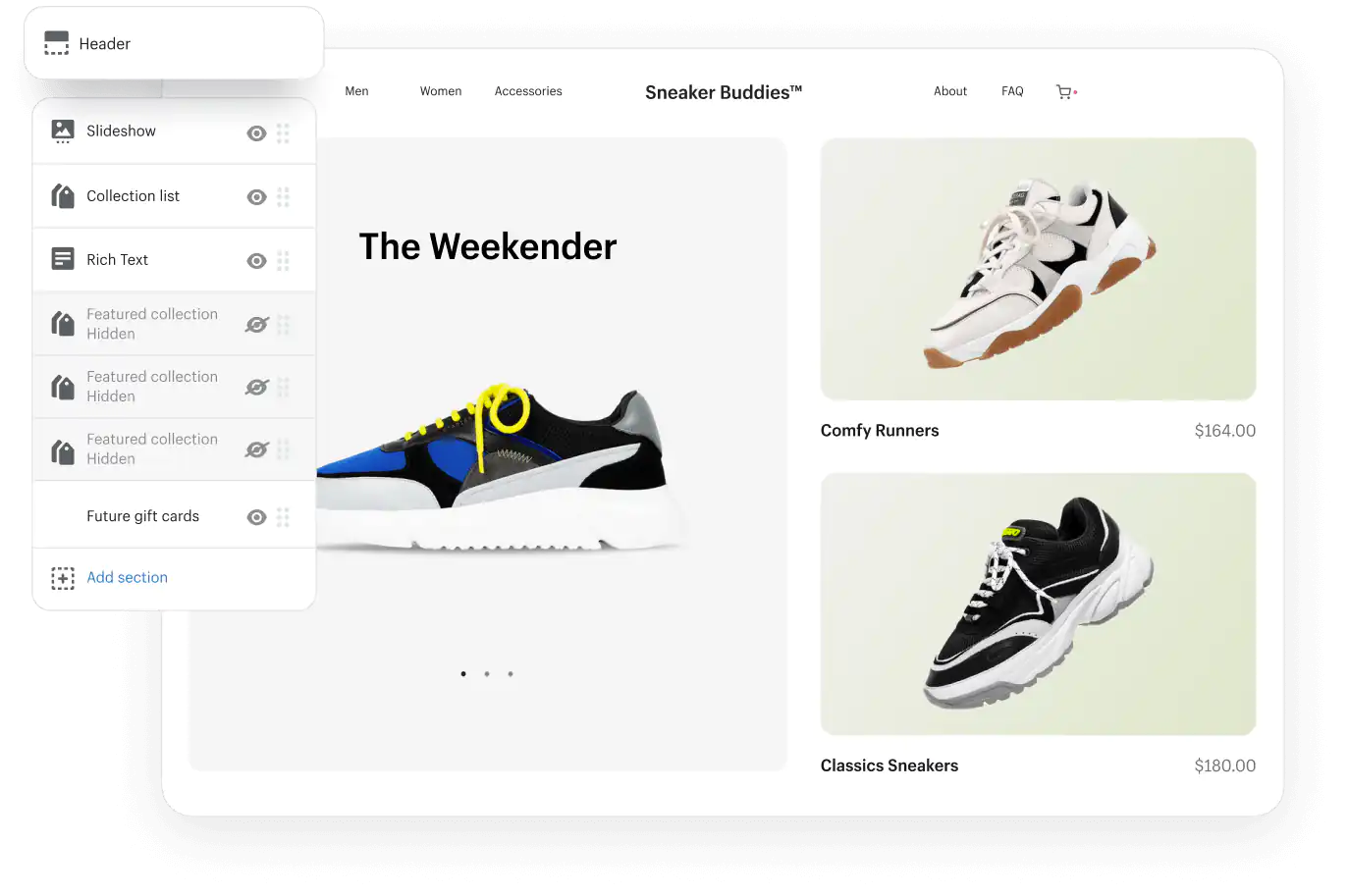
Shopify is a complete digital commerce platform that lets anyone start, grow, manage, and scale a business. It enables businesses to build an online store, market to customers, and accept payments across multiple sales channels and locations—all in one place.
Shopify’s expertise and leadership in commerce is based on the experiences of millions of business owners using the platform. The successes of these businesses—solopreneurs and enterprise brands alike—allow Shopify to build the right features and products to power businesses today and help shape the future of commerce.
Merchants like Allbirds, Silk Laundry, and Quad Lock have found success on Shopify.
2. Amazon
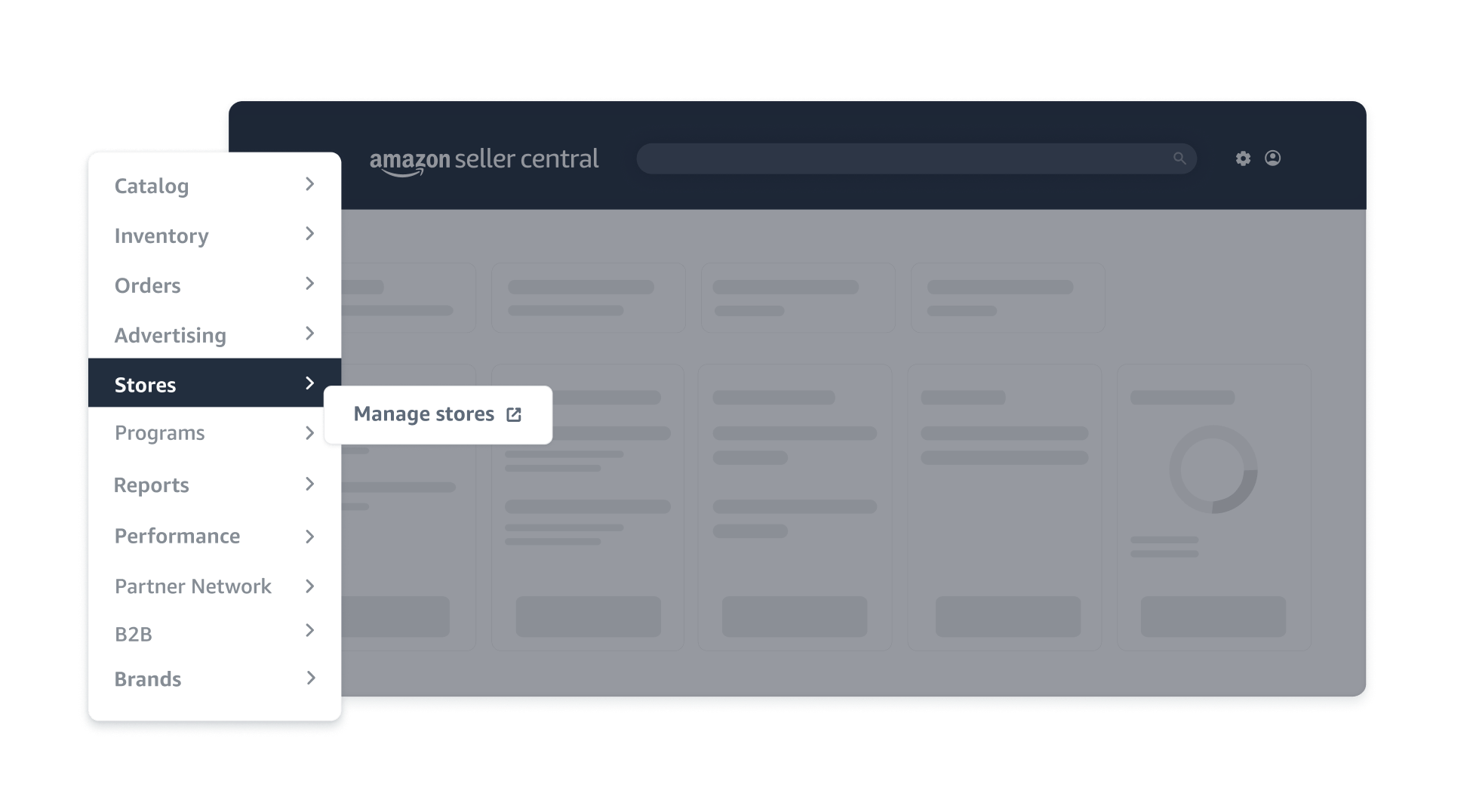
Amazon is a US multinational technology company that focuses on ecommerce, in addition to cloud computing, digital streaming services, and AI. It’s considered one of the Big Five American technology companies, alongside Alphabet (Google), Apple, Meta (Facebook), and Microsoft, and is also one of the largest ecommerce companies worldwide.
Beyond selling products directly, Amazon also acts as a platform for third-party vendors to sell their products, and 60% of sales on Amazon are made by third parties.
From a consumer’s perspective, there’s no difference between a product sold by Amazon and one sold by a third party. From a vendor’s perspective, the sales can either be fulfilled by Amazon (FBA), where the products are warehoused and shipped by Amazon, or they can be fulfilled by merchant (FBM), where the third-party vendor stores and ships the products—however, they must adhere to Amazon’s shipping and packaging standards.
3. eBay

eBay is a US multinational ecommerce corporation based out of San Jose, California. Founded by Pierre Omidyar in 1995 as an online auction site, eBay is one of the standout survivors of the late early 2000s dot-com bubble—a stock market crash caused by excessive over-speculation of online companies in the late 1990s.
Today, eBay is a multibillion-dollar ecommerce business that facilitates both consumer-to-consumer sales on a best-offer basis as well as traditional priced-as-is sales. The site is free to use for buyers, but sellers are charged a fee for listing items. eBay’s annual net revenue was about $9.8 billion in 2022, a decrease from the $10.4 billion reported for the year prior.
4. Etsy
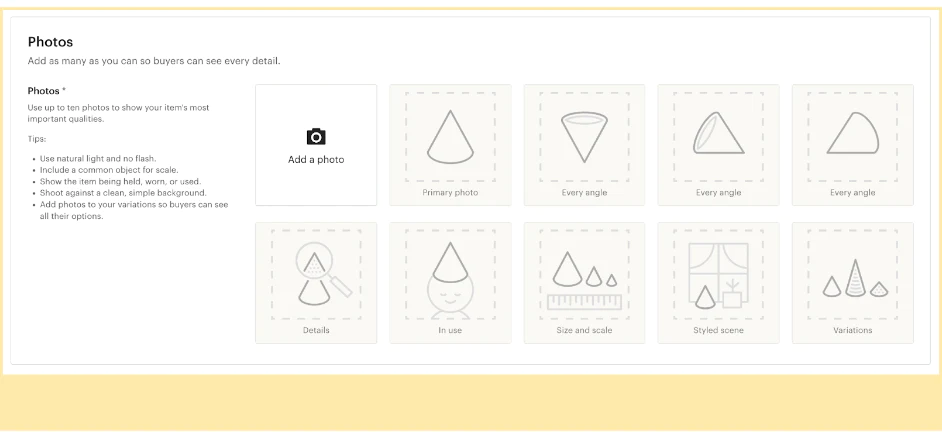
Etsy is a US ecommerce platform focused on the sale of handmade and vintage products, including jewelry, clothing, home décor, furniture, craft supplies, and tools. The site follows the tradition of physical craft fairs, giving small business owners personal, digital storefronts where they can list their goods for fees of 20¢ per item. Etsy reported revenue of $2.6 billion in 2022, and it has about 92 million active buyers.
5. Craigslist

Craigslist is a US classified ad website, modeled after classified sections found in the back of newspapers, with sections for jobs, housing, items for sale, gig services, discussion forums, and more. Craig Newmark, the list’s namesake, started the company in 1995 as an email Listserv for friends focusing on events in the San Francisco Bay Area. That Listserv morphed into a website in 1996 and has since expanded into other advertising and sales categories.
Craigslist now covers metropolitan areas in more than 70 countries and draws about 191.6 million visits a month.
6. Meta
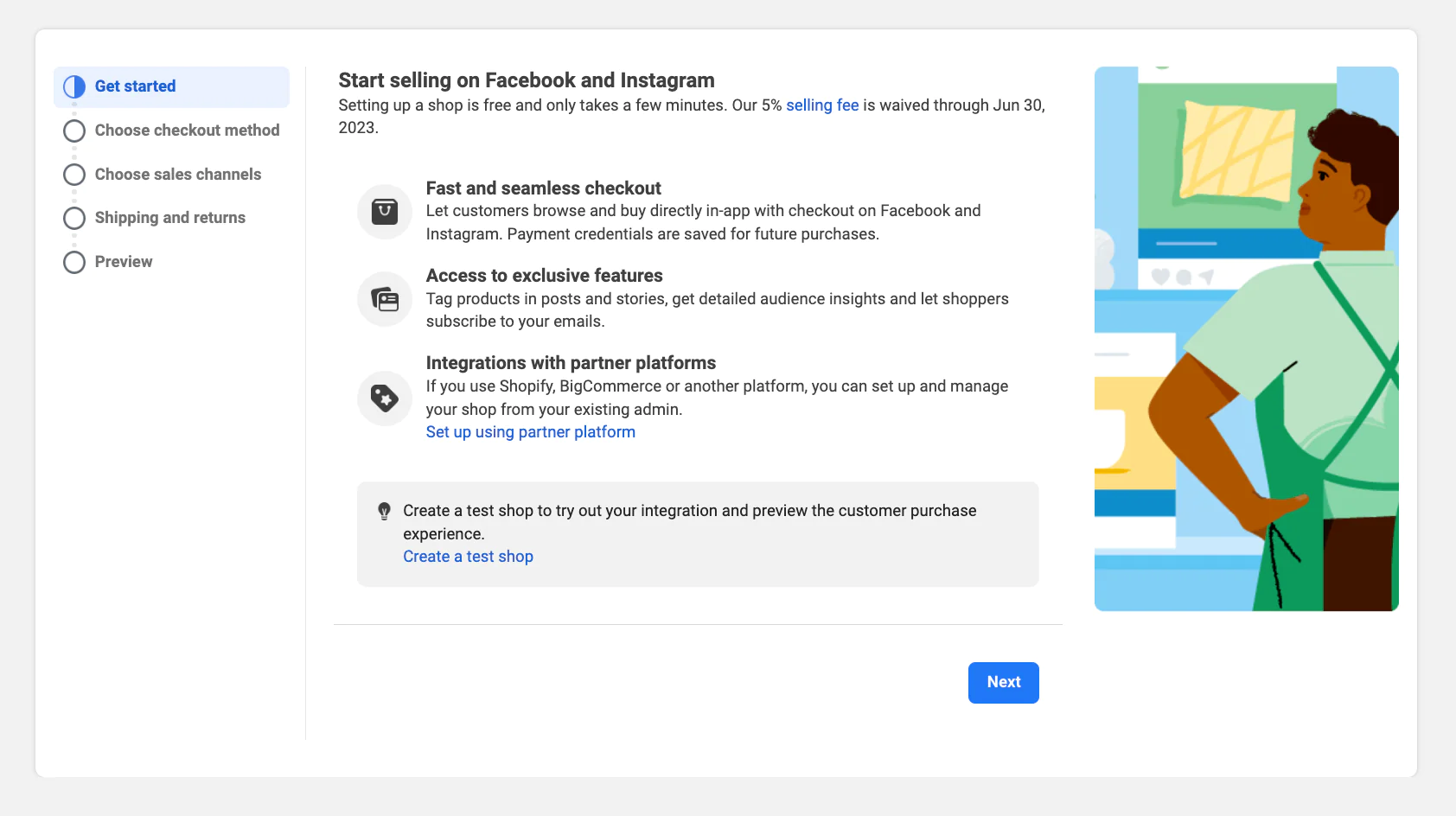
Meta Platforms, formerly known as Facebook, is a US multinational technology company based in Menlo Park, California. The company is most famous as the parent company of social media platforms Facebook, Instagram, and WhatsApp.
It also operates Facebook Marketplace, which functions similarly to Craigslist in terms of offering consumer-to-consumer sales and gig services, and ecommerce functionality for shops on Facebook and Instagram, which allows users to click through on Instagram posts to purchase featured products. Meta generated an estimated $116 billion in revenue for 2022.
7. Walmart
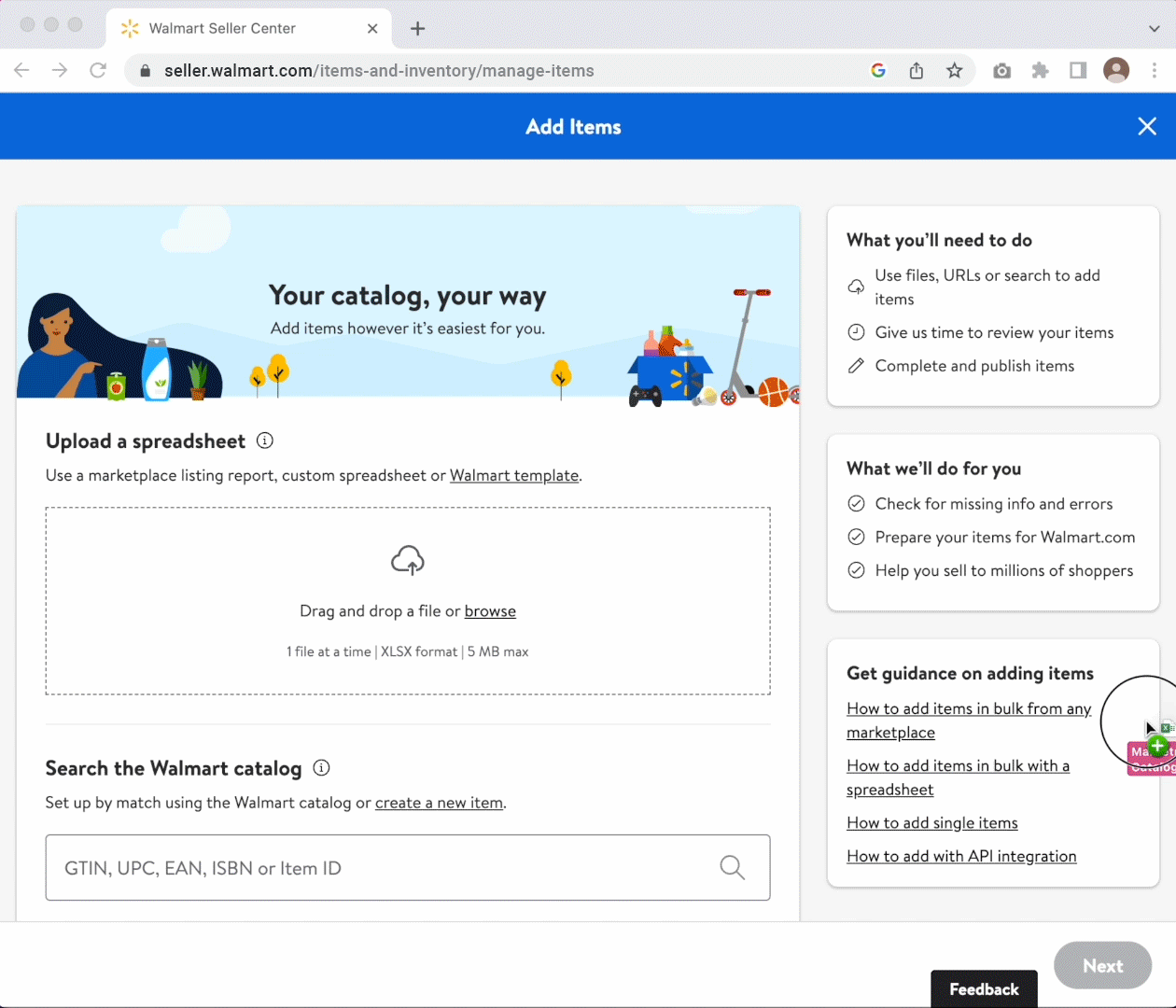
Walmart is a US multinational retail company that operates a chain of “supercenters,” or big-box stores, as well as a major ecommerce website of the same name. The company has been a household name in the US since the 1960s as the preeminent low-price mega-retailer, and now, one of the world’s largest retail corporations. It has stores in all 50 US states and a significant presence (both physical and digital) in Canada and Mexico as well.
Walmart has leveraged its brick-and-mortar footprint toward a successful ecommerce model by using existing stores as warehouses for online orders—customers can buy items off the store shelf through Walmart.com, as opposed to off the shelf of a single warehouse located hundreds or thousands of miles away. Walmart’s revenue in 2022 was about $611 billion, and Walmart.com sees about 268 million visits a month.
8. Target
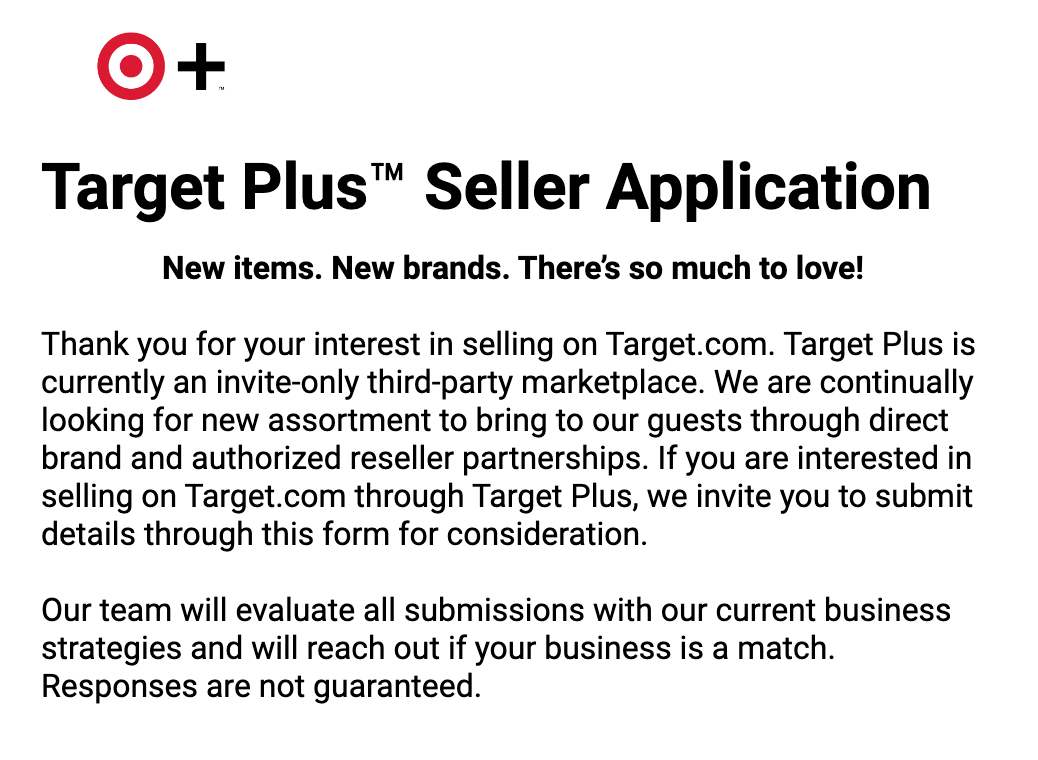
Target is a US big-box department store, the second-largest such retailer in the country after Walmart. It operates more than 1,800 stores throughout the country and has an extensive ecommerce footprint alongside its brick-and-mortar operations.
Like Walmart, Target sells a wide range of consumer goods, from fashion items and home decor to electronics and groceries. Also like Walmart, Target uses its brick-and-mortar stores as alternative warehousing for online orders shipped around the country. Target delivered about $109 billion in revenue in 2022 and enjoys more than 154.7 million visits a month.
9. Best Buy

Best Buy is a US multinational consumer electronics retailer based in Minnesota. Founded by Richard M. Schulze and James Wheeler in 1966 as a stereo store called Sound of Music, it rebranded under its current name to sell a wider range of electronics in 1983.
In addition to its brick-and-mortar retail stores, Best Buy operates a robust ecommerce service through its website, BestBuy.com. BestBuy’s domestic US revenue in 2022 was about $46 billion, which accounted for more than 90% of revenue overall. The site enjoys an average monthly visitorship of about 93.8 million.
10. Alibaba

Alibaba Group Holding Limited is a Chinese multinational technology company offering services in ecommerce, internet service, and technological development. Founded in 1999 in Hangzhou, the company provides consumer-to-consumer, business-to-consumer, and business-to-business sales services and product search engines.
Alibaba is often considered China’s answer to Amazon, as a one-stop ecommerce retailer offering an expansive range of products. It goes beyond that comparison, however, in offering a substantial range of wholesale products for individuals and businesses to purchase and resell. Alibaba’s revenue for 2022 was about $126.5 billion. Its consumer-facing site, AliExpress, has an average of 431 million visits.
Choosing the best ecommerce companies
While the ecommerce landscape has undeniably been shaped by the growth of massive ecommerce companies like Amazon and Alibaba, there’s still ample space for online stores to leverage the model and make names for themselves.
If you’re considering adding ecommerce functionality to your small business, or starting a digitally native ecommerce venture from scratch, here are some questions you may want to consider:
- Do you have a website or the means to design one (either using a website builder or with a web developer)?
- If you already have a website, can it be used as is to launch an ecommerce arm, or will you need a redesign?
- What ecommerce platforms are best suited for your business format: Are you business-to-consumer, business-to-business, etc.?
- What traffic goals would your ecommerce arm need to meet in order to make the investment worth it?
Beyond simply the best online store builder, think about the other business tools those platforms offer. It’s often beneficial to use a seamlessly integrated ecosystem, consisting of your online store, payment processor, POS, and even small business lender. Shopify, for example, has an entire suite of tools that help you manage every aspect of your business, and an App Store with more than 4,000 apps to help you customize the experience for your customers and your team.
Selling online with your own ecommerce website has never been easier, faster, or more scalable. Shopify is a single platform that lets you sell wherever your customers are—online, in-person, and everywhere in between.
Read more
- What is Shopify and How Does it Work?
- 8 Dropshipping Software for New Dropshippers
- How To Write a Return Policy (+ Free Template) (2024)
- Top Wholesale Marketplaces to Sell Your Products (2024)
- How to Avoid Burnout As an Entrepreneur
- What is Ecommerce Website Development? A 2024 Guide
- 12 Checkout Process Optimization Tips to Increase Ecommerce Revenue
- What Is Digital Commerce? Learn How Digital Commerce Works
- What Is Ecommerce Fulfillment? Guide to Fulfillment Strategies
- What is an E-Commerce Shopping Cart and Why Does It Matter?
Ecommerce companies FAQs
What are the leading ecommerce companies?
- Shopify
- Amazon
- eBay
- Etsy
- Craigslist
- Meta
- Walmart
- Target
- Best Buy
- Alibaba
What is the most popular ecommerce company?
Shopify is one of the most popular ecommerce companies. More than four million ecommerce websites across 175 countries are powered by Shopify.
What are 5 examples of ecommerce?
- Online retail stores: Companies like Amazon, where consumers can purchase a wide range of products online.
- Online marketplaces: Platforms like eBay and Etsy, which connect buyers and sellers for various products, including vintage items, handmade goods, and collectibles.
- Digital downloads: Online platforms like Apple Music and Steam that sell digital products such as music, video games, and software.
- Subscription services: Businesses like Netflix and Spotify that offer subscription-based access to digital content.
- Click and collect: Also called buy online, pickup in-store (BOPIS), when people make a purchase online but then pick it up in person.





